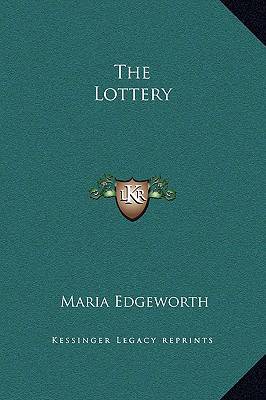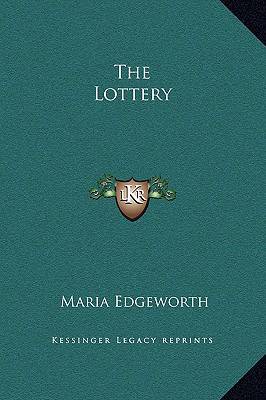
- Retrait gratuit dans votre magasin Club
- 7.000.000 titres dans notre catalogue
- Payer en toute sécurité
- Toujours un magasin près de chez vous
- Retrait gratuit dans votre magasin Club
- 7.000.0000 titres dans notre catalogue
- Payer en toute sécurité
- Toujours un magasin près de chez vous
Description
The Lottery is a short story written by Maria Edgeworth, an Anglo-Irish writer and novelist. The story is set in a small village in Ireland, where the villagers gather every year to participate in a lottery. The lottery is a tradition that has been passed down for generations and is seen as a way to bring good luck to the village.The story follows the perspective of a young woman named Nelly, who is a visitor to the village and is witnessing the lottery for the first time. Nelly is shocked and appalled by the brutality of the lottery, as the winner is chosen by a blind draw and is then stoned to death by the other villagers.As the story progresses, Nelly becomes increasingly disturbed by the villagers' enthusiasm for the lottery and their lack of empathy for the winner. She tries to convince them to abandon the tradition, but they are resistant to change and see the lottery as an essential part of their culture.The Lottery explores themes of tradition, violence, and the power of social norms. It is a thought-provoking and unsettling story that raises important questions about the role of tradition in society and the consequences of blindly following cultural practices.But all that Mrs. Dolly said was lost upon Ellen, who declared that she would never be so mean as to encroach upon such a generous friend; and Maurice protested that nothing that man, woman, or devil, could say, should persuade him to live in idleness another year. He sent George the next morning to Mr. Belton with a letter, requesting that he would procure employment for him, and stating what he thought himself fit for. Amongst other things, he mentioned that he could keep accounts. That he could write a good hand was evident, from his letter. Mr. Belton, at this time, wanted a clerk in his manufactory; and, upon Maurice's repeating his promise never more to frequent the gaming-table, Mr. Belton, after a trial, engaged him as his clerk.This scarce antiquarian book is a facsimile reprint of the old original and may contain some imperfections such as library marks and notations. Because we believe this work is culturally important, we have made it available as part of our commitment for protecting, preserving, and promoting the world's literature in affordable, high quality, modern editions, that are true to their original work.
Spécifications
Parties prenantes
- Auteur(s) :
- Editeur:
Contenu
- Nombre de pages :
- 34
- Langue:
- Anglais
Caractéristiques
- EAN:
- 9781169187771
- Date de parution :
- 10-09-10
- Format:
- Livre relié
- Format numérique:
- Genaaid
- Dimensions :
- 178 mm x 254 mm
- Poids :
- 285 g

Les avis
Nous publions uniquement les avis qui respectent les conditions requises. Consultez nos conditions pour les avis.






